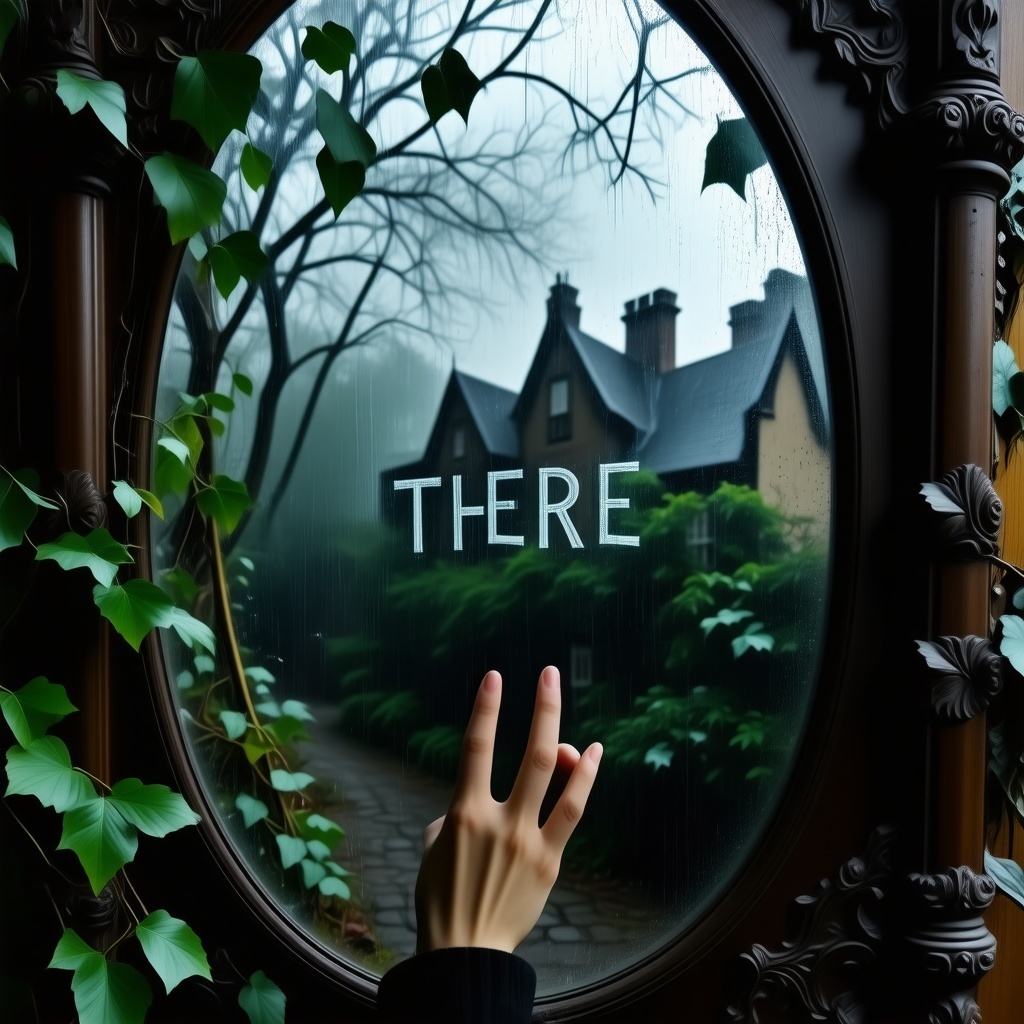The taxi pulled away, leaving Mira standing in front of a faded blue house on Vale Street, suitcase in hand, heart pounding like a warning bell.
It was supposed to be a fresh start.
New city. New job. New name.
Far away from what happened.
The small town of Crowthorne was everything her old life wasn’t—quiet, slow, forgettable. Exactly what she needed. The house she rented was old but charming. Ivy curled around the porch. The mailbox creaked. It even had that “haunted-but-harmless” vibe people romanticized online.
But Mira didn’t believe in ghosts.
She only believed in what follows you when you try to forget.
The first week was quiet. She painted the walls, unpacked her life piece by piece, made tea and playlists, and even introduced herself to the bakery owner down the street, Mrs. Wilkes, who smiled a little too knowingly when Mira mentioned Vale Street.
"That house hasn’t had a tenant in years," she’d said, dusting powdered sugar off her fingers. "Most folks don’t stay long."
Mira had smiled politely. She didn’t care about local legends. She wasn’t running from ghosts.
She was running from what she’d done.
The noises began on the seventh night.
Soft thuds. Creaking floors. Whispers when the lights were off. The mirror in the hallway fogged up randomly—no steam, no warmth, just mist and a single word traced with a fingertip:
"THERE."
Mira wiped it away.
She didn’t believe in haunted houses. She believed in psychology. Guilt. Trauma. Memory. All the things she’d studied, understood—and now, lived with.
She ignored the signs. She even laughed to herself once, whispering, “Nice try,” when the TV flickered to static on its own.
But then the photograph appeared.
It was in the mailbox, no stamp, no envelope.
An old photo. Torn edges. Faded ink.
It was of her, standing in the woods behind her childhood home. The same hoodie. The same scar on her hand. But the disturbing part?
She had never taken this photo.
And she was not alone in it.
Behind her, just barely visible in the trees, was him.
Mira’s hands trembled.
He was supposed to be gone.
She’d left that night buried six feet under metaphor and soil. She’d lit the match herself. Watched the fire erase everything.
He was dead.
Dead.
But the photo said otherwise.
The doorbell rang.
Mira nearly screamed, heart leaping into her throat. She opened it slowly.
No one was there.
Just a box.
Inside was a journal.
Her journal. The one she burned the night she ran.
She flipped to the last page. Her handwriting… but freshly written.
“No city is far enough. No name is new enough. You cannot run from the part of you that remembers.”
She slammed it shut.
The next day, she went to the police. Showed them the photo and the journal. They took her statement, nodded sympathetically, and said they’d “look into it.” But their eyes said it all:
They thought she was unstable.
That was the thing about starting over. No one knew your truth. And no one believed it when it finally screamed.
That night, the mirror misted again.
"BELOW."
Her breath caught. The basement. She hadn’t dared to go down yet. It was locked when she moved in.
Now the door stood open.
With shaking hands and a flashlight, she descended the stairs. Dust filled her throat. The beam cut through cobwebs and shadows until she reached the floor. The air was cold and damp.
And then—
She saw it.
A wall, freshly patched. Too fresh.
She touched the plaster. It crumbled under her fingers.
Behind it… was a small cavity.
Inside it… a box.
Inside the box…
Bones. A locket. A photograph of him.
And a note, in his handwriting:
“You buried the wrong body.”
She stumbled backward, dropping the light. The basement swallowed her in darkness.
Something moved in the corner.
A voice she hadn’t heard in years.
“Miss me?”
She ran.
Back in her room, she locked the door, slid to the floor, and cried. The past wasn’t just following her.
It had moved in.
The next morning, Vale Street looked the same. Birds chirped. Clouds drifted. But something had changed in Mira.
She wasn’t scared anymore.
She was angry.
She drove to the only other place where the truth still breathed: the orphanage. The one where they met. Where it all began. Where secrets were buried deeper than bones.
The building was abandoned. But she found it.
An old record room.
She dug through files, yellowed and crumbling.
There it was.
His file.
“Presumed dead. Body never recovered. Last seen near Vale Woods.**
At the bottom, scrawled in red ink:
“DO NOT FOLLOW.”
But she had.
She had followed.
And now, he was following her.
Mira returned to Vale Street, hands bloodied from clawing at truth.
In her kitchen stood the figure from the photo—just a blur, a shadow, a smile too wide.
“I didn’t die,” he said. “You just left me.”
She stared, silent. Then whispered:
“You were never real.”
He paused. Flickered.
“Aren’t I?”
Mira picked up the matchbox.
Lit one.
Held it near the curtains.
“Let’s end it together this time.”
He didn’t stop her.
Because he was never truly there.
Flames rose.
But this time, she stepped out.
Watched the house burn.
Watched her past scream.
Watched herself finally walk away.
The fresh start didn’t come from moving.
It came from facing what followed her—and choosing not to be afraid of it anymore.
The End.



 React
React